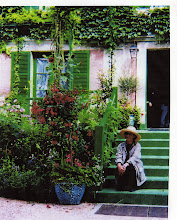Soil amendments - are not necessarily fertilizers, but organic substances we incorporate into soil to adjust it to our crops needs, and to make a better soil. Compost, leaf mold, peat moss are the usual amendments - organic products that will continue to break down, add air to soil, act as sponges to hold water and nutrients.
Fertilizers - plant need basic nutrients to thrive. The "major" nutrients are NPK - Nitrogen, Phosphors, Potassium - minor nutrients are also necessary. A plant will not survive with out sufficient quantities and proportions of Major nutrients.
Organic fertilizers - are fertilizers derived from plants and animals. Chemical fertilizers are derived through chemical processes.
Certified Organic - is a means of producing food, plants and animals that follow strict codes established by our governments. We now have a national organic code that one must qualify to be certified. Previously we had various states codes eg: Oregon Tilth, California Organic. Most home gardeners ought not tie themselves up with certification. Practice organic methods, use organic products for healthy soils and healthy food, but certification is complicated, expensive and requires a lot of time.
Cover crops - a crop one can plant to hold nutrients in the soil when a crop is not growing, or to hold soils over winter to protect from erosion and nutrient loss. Good to turn the cover crop into the soil early in season so it becomes compost.
Frost dates - last date to expect frost in spring, first date to expect frost in Fall. Frost will freeze your plants, and kill them. You can protect crops from frost by placing blankets and various crop covers when you suspect a frost is due.
Heavy Freeze - this is a crop killer.
Hardening off - plants raised indoors or in a green house are "tender" they have not yet formed the tough cells to prevent sunburn, wind damage, light frost damage. Plants need a protected period when the are placed outdoors, but under some sort of cover. an unheated cold frame, a plastic hoop, under a table - especially at night. A week or two will have them ready to move into permanent positions.
Crop covers - usually spun polyester floating blankets "Remay" is a brand name, holds in heat, protects from insects, prey, rain can pass through. Winter blankets are heavy white fiberfill like blankets and protect plants over winter.
Shade blankets - fabric woven to lightly shade crops like lettuce durning hot sunny days.
Bolt- when a cool season crop , like Lettuce, Spinach get to hot, too much sun, they get very tall and start to set seed - "bolt" upwards unless you want the seed, it is time to put this plant in the compost pile.
Cool season crops - some plants grow well in the "cool season" spring and fall, shorter day lenght, cool nights, cooler days -Lettuce, Spinach, Peas are some of these. You can manipulate growing conditions to a certain degree to prolong these crops - plant where they will receive more shade, use shade cloths.
Warm season crops - some plants grow best in hotter weather, will not grow in cool weather, they like longer day lengths and warmer nights Tomatoes, Eggplants, Corn, Squash, Sweet Potatoes are some of these. You can manipulate growing conditions to encourage some of these - crop covers, dark mulches, clear "cloches", grow in controlled green houses.
What is Organic? Should I be certified? - Laura Simon
Sometimes would be organic gardeners are daunted by the word "certified" that so often precedes "organic" on food labels and in the press. It conjures up visions of endless forms, applications, and government intrusion, but this is true only if you are planning to sell your produce to Whole Foods. There is no certification process for home gardeners. Organic gardening is not about doing paperwork. It's about feeding the soil naturally, so the soil can feed the vegetables and flowers. It's about banishing chemical fertilizers and poisonous insect sprays from your tool shed and your food. Organic gardening is about taking lessons from Nature. You pass the first time you bite into a sun-ripened, juicy tomato or a just-picked crunchy salad and know that you are eating pure, delicious food with no toxic seasonings. Good health. That's all the certification you need.
Soils: for now please go to my other blog - thegardens-nantucket - ( click at top of page) look in March for the soils blog - always being added to.

No comments:
Post a Comment